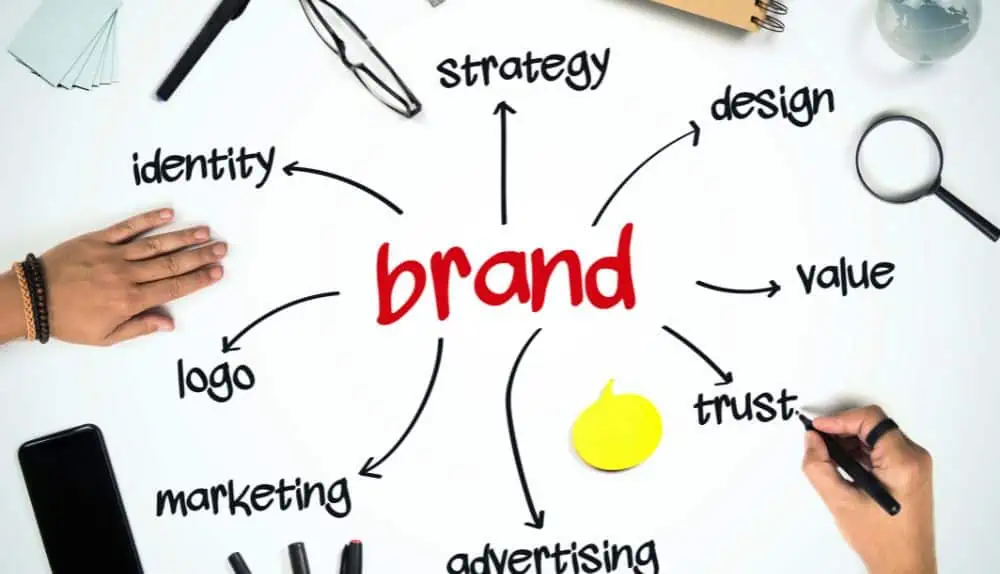If you are thinking of starting a new eCommerce venture, one of the most daunting tasks will be to source the products you want to sell. Finding dependable and cost-effective suppliers is crucial for the success of your online business. Thankfully, many manufacturing companies provide production services to eCommerce entrepreneurs, enabling you to obtain new products efficiently and affordably. One key aspect that you must consider white label vs. private label products.
This guide delves deeper into these two product categories and their respective benefits. By comprehending the intricacies discussed in this article, you will be able to make informed decisions when sourcing products for your eCommerce business. Having a clear understanding of the difference between white-label and private-label products can give you a competitive edge and ensure the long-term success of your business.
What is White Labeling?

White labeling is a common business practice where a product or service is manufactured by one company and then sold under another company’s brand. The company rebranding the product can add its own logo, packaging, and branding to it, making it appear as if it had created it themselves.
Furthermore, they allow the rebranding company to offer their customers a product without investing in the time and resources required for development, production, and marketing.
The original manufacturer remains anonymous and does not market the product under their own name, allowing the rebranding company to take full credit for the product and build its own brand reputation.
White labeling is commonly used in various industries, including consumer goods, technology, and software. It is a cost-effective way for companies to expand their product offerings and reach new customers, as well as for manufacturers to reach a wider audience for their products.
White Labeling Examples
Here are some examples of white labeling across various industries:
Personal Care – A company that specializes in creating personal care products, such as shampoo and toothpaste, may opt for white labeling and offer their products under the branding of a more prominent retailer.
Electronics – An electronics manufacturer may produce a smartphone for another company, which then adds its own branding and packaging to it, transforming it into its own product.
Customized Software – A software development firm may create a custom app for another company and allow them to sell it under its own brand, with the original developer’s name kept confidential.
Food & Beverage Industry – A beverage manufacturer may create a drink and then sell it to another company, which rebrands it and sells it under its own name.
Clothing Industry – A clothing maker may produce a line of t-shirts for a retail chain, which then adds its own branding and labeling before selling it in its stores.
These are just a few examples of white labeling in different industries. The practice is widely used across many industries and is a cost-effective way for companies to expand their product offerings and reach new customers.
What is Private Labeling?
Private labeling is a business strategy in which a product is manufactured specifically for a single retailer or brand and sold under its brand name. Unlike white labeling, the retailer or brand takes full ownership of the product, including its development, production, marketing, and customer service. The manufacturer remains anonymous and does not promote the product under their own name.
Private labeling enables retailers and brands to offer unique products to their customers and differentiate themselves from their competitors. The retailer or brand has complete control over the product’s branding, packaging, and marketing, allowing them to build their own brand reputation and establish a loyal customer base.
This business strategy is prevalent across various industries, including consumer goods, food and beverage, and personal care products. Private labeling allows retailers and brands to offer high-quality products at competitive prices while also allowing manufacturers to reach new customers and expand their business.
Private Labeling Examples
Here are some examples of private labeling across various industries:
Grocery Store Brands – Many grocery stores offer their own brand of food and household items, such as cereal, pasta, and cleaning products. These products are manufactured specifically for the grocery store and sold under the store’s brand name.
Cosmetics – A makeup brand may offer private labeling services to other companies, allowing them to create their own cosmetics line under their brand name.
Supplements – A dietary supplement manufacturer may offer private labeling services to health and wellness companies, who then sell the supplements under their brand name.
Clothing – A clothing manufacturer may offer private labeling services to clothing retailers, who then create their clothing line and sell it under their brand name.
Pet Food – A pet food manufacturer may offer private labeling services to pet stores, selling pet food under their brand name.
These are just a few examples of private labeling across different industries. The practice allows retailers and brands to offer unique products to their customers and build their brand reputation while also allowing manufacturers to reach new customers and expand their business.
White Label vs Private Label -Key Differences
White labeling and private labeling are two distinct business strategies that companies use to bring products to market. Although they share some similarities, they differ in several key aspects, including ownership, branding, and control.
White labeling refers to manufacturing a product and then selling it under another company’s brand name. The original manufacturer remains anonymous and does not promote the product under their own name. White labeling allows companies to quickly and affordably access new products to sell without investing time and resources into product development and marketing.
On the other hand, private labeling involves manufacturing a product specifically for a single retailer or brand, which then sells it under its brand name. The retailer or brand takes full responsibility for the product, including its development, production, marketing, and customer service. Private labeling allows retailers and brands to offer unique products to their customers and differentiate themselves from their competitors.
Ownership
In terms of ownership, white labeling involves the original manufacturer retaining ownership of the product, while private labeling involves the retailer or brand taking full ownership of the product.
Branding
Branding is another key difference between the two strategies. With white labeling, the brand name and packaging are determined by the company purchasing the product. Private labeling, however, allows the retailer or brand to create their brand name and packaging, giving them complete control over the product’s branding and marketing.
Control
In terms of control, white labeling involves the original manufacturer retaining control over the product’s development, production, and distribution. In contrast, private labeling gives the retailer or brand complete control over the product, including its development, production, marketing, and customer service.
Which One is The Right Choice For Your Business?
Now that you have a good understanding of white labeling vs. private labeling, it’s time to consider which approach would be the best fit for your company.
If your main objective is to find products fast and make them available for sale, white labeling may be the way to go. This option is budget-friendly and time-effective, as you can easily find a white-label product supplier that meets your needs and constraints online. Additionally, you can personalize your products by adding your logos and packaging.
On the other hand, if you aim to create a unique and recognizable brand, private labeling is the ideal choice. Private label producers can customize products according to your design specifications, allowing you to offer one-of-a-kind products under your own brand name. This option requires a more considerable investment, both in terms of money and time, but it can be worth it in the long run if you’re serious about building a brand.
It is vital to note that buyers may feel misled when they discover an item is a white-label product. Suppose a consumer finds that they can purchase the identical product at a lesser price from another shop or directly from the producer. In that case, it may harm your brand’s image and limit the possibility of repeat business.
Lastly, it’s worth mentioning that these two options are not the only ones available. Some successful entrepreneurs choose to invest in their own production capabilities, although this requires a substantial upfront cost. This approach can lead to cost savings in the long run if you become an expert in a specific product area.
Conclusion
White labeling and private labeling are both helpful business strategies for eCommerce entrepreneurs looking to source products for their online businesses. White labeling allows companies to quickly and affordably access new products to sell. In contrast, private labeling enables retailers and brands to offer unique products to their customers, build their brand reputation, and differentiate themselves from their competitors.
Understanding the key differences between the two product categories can help you make informed decisions when sourcing products for your eCommerce business and give you a competitive edge for long-term success.
It is crucial to carefully evaluate your business goals and needs before choosing between white-label and private-label products to ensure the best outcomes for your eCommerce venture.

